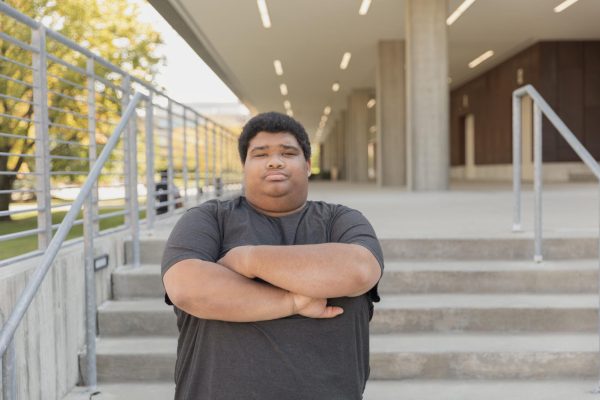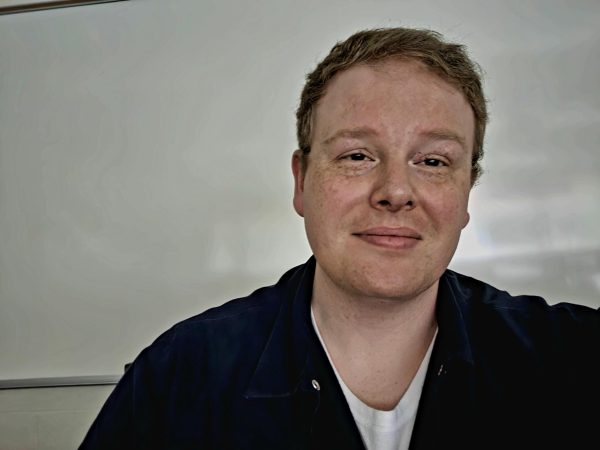Letter to the editor: The Problem of Faculty Resignations at Oakland
The AAUP has been deeply concerned about problems with faculty morale over the past two years. We have tracked a number of resignations and retirements that seem to confirm this sense. In an effort to better understand what provokes faculty to stop working at Oakland, we have surveyed those leaving the institution. The results are disturbing.
The OU AAUP Faculty Exit Survey was sent to 31 faculty and we received 21 responses. We identified our pool by gathering information about faculty departures from our members (including department chairpersons). The survey asked basic demographic questions and a series of questions about academic unit and university experiences. It concluded with an open-ended comment section.
We have received responses from 21 faculty who chose to leave the university this year. This group represents faculty across the university, and is roughly representative of the larger distribution of faculty across the units. The vast majority, 75%, were resignations, not retirements.
The profile of those leaving reveals the potential for a long-term, negative impact on Oakland’s ability to deliver programs. Faculty in the tenure-stream provide the university with academic continuity, and yet 75% of those leaving were in this group. Their age profile is also disturbing, with 60% falling between 30 and 49 years of age–this period typically marks the most stationary part of an academic life. This does not bode well for the continuity of academic programs and research trajectories emanating from Oakland.
The survey permitted respondents to comment on their experiences at the university; some of these comments reinforced concerns that were raised by the statistical data.
- I cannot emphasize enough the unreasonableness in service expectations that has come about the past five years. It is committee after committee and after committee formation. Mind you, the chair has been wonderful in terms of setting direction and moving programs forward, but the expectation of 8 to 10 committees or working groups is too much. If this was not occurring, I probably would not have been on the job market so soon.
- I attended the leadership academy this year. While the facilitators were excellent, my primary take away from exposure to OU’s leaders is that complete availability and erosion of boundaries was an expectation. While I genuinely loved my work here, I determined I was unwilling to continue down that road. My decision was also influenced by the University’s disregard for pandemic conditions.
- The university needs to keep students’ issues at the forefront; OU is not meeting the needs of its populations.
- The main reason I went on the job market was due to the accumulation of stress within my department. We have been engaging in a number of program redesign initiatives, accreditation initiatives, along with unreasonable expectations of service. There is very little protection of junior faculty members’ time and very little care and concern about work-life balance.
- Lack of understanding and connection on the part of the Board of Trustees as to what we do as faculty, and the trajectory as to where issues such as salary and benefits may be headed in the future. Similar sentiment regarding working conditions, support, and research dollars.
This data should not be dismissed as the opinion of a few malcontents. It marks a shift in faculty morale over the past several years that has important long-term consequences for the health of the university. When young, talented, and energetic faculty leave the university, they take their leadership skills with them. They will not be here to help develop new programs, or to maintain larger research initiatives. The success of the university so far has been built on our ability to attract talented faculty and keep them for their entire careers.
If Oakland is going to become “a university of choice” it must identify problems facing the faculty and attempt to resolve them. And yet, the university has failed to even ask faculty why they leave.
The AAUP wants to understand why our faculty leave Oakland; that way we can improve the working environment for those who remain. We are happy to discuss possible remedies to the university’s problems.
Karen A.J. Miller, President, OU-AAUP (AFT)










anonymous • Sep 16, 2022 at 2:37 PM
This is kind of the whole point, isn’t it? Push out faculty who might have their own ideas for a great program so that the Board of Trustees and the Administration can have a heavy handed, top-down implementation of what they think is best. Never mind that they’re not actually working in my field of study; as an administrator they clearly know all they need to know to have an opinion about it. (That was sarcasm, btw.)
Students, please understand. You’re supposed to get what you pay for. Oakland University’s Board of Trustees and the Administration have been watering down the booze while you weren’t looking. You’re paying for cognac and getting wild turkey.
Doc • Sep 17, 2022 at 2:40 AM
As a younger faculty member myself, I have decided to leave Higher Ed next year because of the hypocrisy in it. Education is big business and should be taxed as such. The younger faculty will not play the tenure game .
yousef • Sep 19, 2022 at 1:51 PM
Tenure as an idea is flawed. If i am incompetent at my job i should be fired, If I am competent it would be stupid to fire me. Tenure allows instructors to perform poorly and avoid repercussions . Why do teachers get a free pass to be incompetent yet every other profession does not?
Username • Sep 20, 2022 at 12:52 PM
That is one of the downsides of unionization, Yousef.
Username • Sep 20, 2022 at 1:28 PM
This raises an interesting question. How many of the resigning faculty are heading to different fields entirely? While the role OU’s disasterous administration plays in decreased retention at OU should not be ignored, it should also be noted that this is to some degree occurring throughout academia. The level at which our society has come to value the education offered by institutions of higher learning has dropped to a point where academia as we know it may no longer be a sustainable model. One of the things that the pandemic showed us is that online learning, if done properly, can be very effective. Not in all situations or for all instruction of course, but for a very great majority of it. That alone should cause us to revisit how we use our buildings and whether new construction will actually fit in with the future of education. If in-person classes are largely unecessary, so too are dorms, cafeterias, parking lots, classroom buildings, and all the expenses which go along with operating and maintaining them. If this is the direction education is heading, and every indication is that this is the case, wouldn’t it be better to be ahead of the curve rather than be forced to catch-up? The academia bubble is bursting, that much is clear. If OU is going to exist in 30 years at all, it needs administrators with the capacity to see objectively into that future, who are willing to abandon the old ways of doing things when it is clear that they are no longer appropriate, and who are themselves intellectually advanced enough to create a new model of higher education which is both affordable and sustainable, while maintaining a level of quality which society values. No easy task, to be sure. But the only other alternative is to be rejected by society entirely. Doc’s observation that younger faculty will not play the tenure game is accurate, but it is ultimately only the tip of a very, very large iceberg. Society is itself approaching a point where it is unwilling to play the academia game. OU needs to prepare for that.
yousef • Sep 21, 2022 at 3:56 PM
I agree . I firmly believe that the major value proposition in a majority of the programs in higher education is the credentialing power institutions have.
The value of the education provided in light of alternatives (free or low cost online education) is distinct. For certain academic disciplines such as humanities and liberal arts and certain mathematics there exists a vast array of high quality educational resources that are mostly free to access or extraordinarily low cost online.
In contrast universities charge exorbitant sums of money for this knowledge and what is the difference? anyone can lookup a syllabus and get the course content (texbooks and outline) and self learn the same thing! This probably isn’t the case with lab oriented classes or higher level courses (like numerical analysis or calculus).
The only ace in the hole universities have is the degree granting power. The ability to lock you out of certain professions simply because you do not have a degree. This is largely due to (IMO) the laziness of the private sector and public sector to properly vet qualified candidates that do not bear degrees. What really is salt on the wound is the excess irrelevant courses accrediting agencies require (ABET). 1/4 of my undergraduate courses were related to the humanities or social sciences (i am a science major). 2 english courses, 2 social science electives, humanities, economics etc. The only relevant course to me was economics! Considering my undergraduate degree costs $189,000, $47,250 was spent to check a very expensive box.
I think for fields such as doctors, nurses, engineers, lawyers, etc i am ok with more or less demanding a degree. I want my implants to work and my bridges to not collapse afterall.
Why do we care about degrees for teachers, dancers, theatre, graphic design, early childhood education, etc. arent these professions more to do with the talent of the individual (for arts) or easily substituted out (teachers)? Low level teachers afterall do not impart knowledge that most of us with a high school education already could teach our children. Why require a degree when a skilled trade model would likely suffice? I have heard of children in daycare being taught to read by age 3 simply by reading to them and going through a series of steps to help them annunciate the words. What therefore does a teaching degree add that an apprenticeship training model cannot!